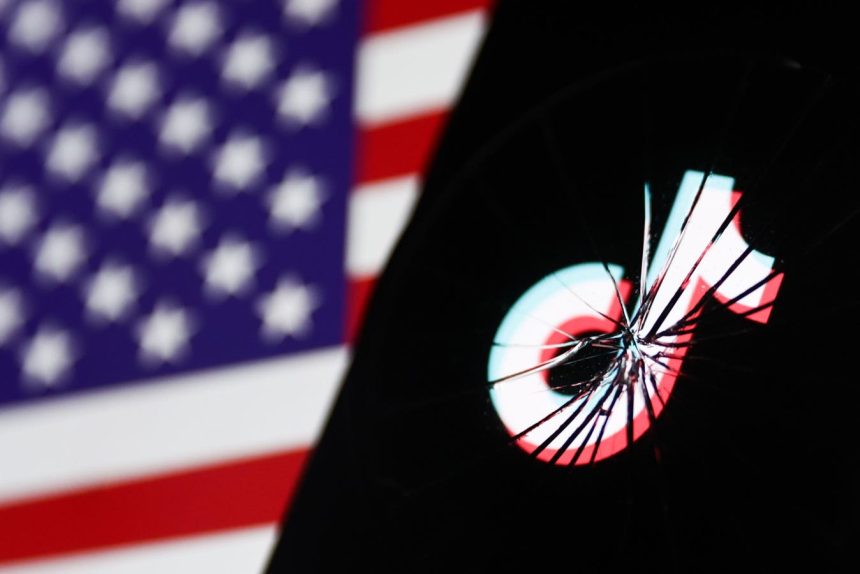The future of TikTok in the United States hangs precariously in the balance, awaiting the judgment of the Supreme Court. A federal law, slated to take effect on January 19th, mandates the sale of the popular social media app by its Chinese parent company, ByteDance, or face a nationwide ban. This impending deadline marks the culmination of years of intense debate surrounding national security concerns, data privacy, and the delicate interplay between free speech and government regulation. TikTok’s fate will be determined by the Supreme Court’s interpretation of the law and its potential implications for the First Amendment rights of the platform and its users.
The legal battle over TikTok’s presence in the U.S. has unfolded across multiple fronts and jurisdictions. The initial spark ignited in May 2024 when eight TikTok users and the company itself filed separate lawsuits against the federal government, alleging violations of First Amendment rights and characterizing the ban as unconstitutionally overbroad. These legal challenges traversed the judicial system, ultimately reaching the D.C. Circuit Court of Appeals, which upheld the ban in December, prioritizing national security concerns over TikTok’s First Amendment arguments. This ruling prompted TikTok’s urgent appeal to the Supreme Court, seeking an injunction to prevent the ban from taking effect while the court deliberates on the complex legal issues at stake.
The Supreme Court’s decision to hear TikTok’s case has injected a new level of urgency and complexity into the situation. The scheduled oral arguments, set for January 10th, just days before the ban’s implementation date, underscore the high-stakes nature of the legal proceedings. TikTok’s request for an injunction is a crucial element in this legal drama, as it seeks to maintain the app’s operational status while the court grapples with the constitutional and legal ramifications of the ban. This legal maneuver aims to provide the court with ample time for a thorough and considered review, preventing what TikTok describes as the silencing of a vital communication channel for millions of Americans.
The looming ban has also sparked speculation regarding potential buyers for TikTok’s U.S. operations. Several major companies have been mentioned as potential suitors, reflecting the platform’s immense value and influence. Amazon, with its burgeoning partnership with TikTok and its position as a top advertiser on the platform, has emerged as a leading contender. The possibility of a joint bid from Oracle and Walmart, who previously attempted to acquire TikTok in 2020, has also surfaced. Microsoft, another previous bidder, could potentially re-enter the fray. Even video-sharing platform Rumble has expressed public interest. However, any potential sale would require the approval of the Chinese government, which has vowed to protect TikTok’s algorithm, creating another layer of complexity in the ongoing saga.
The political dimensions of the TikTok ban are further complicated by the involvement of billionaire investor Jeff Yass, a significant stakeholder in ByteDance, TikTok’s parent company. Yass’s substantial financial backing of conservative lawmakers opposed to the ban has raised questions about the influence of financial interests on the political debate. His reported threats to withdraw campaign donations from politicians supporting the ban highlight the intersection of business, politics, and the ongoing legal battle. This political maneuvering adds another layer of intrigue to the TikTok saga, underscoring the high stakes and the interplay of various powerful forces vying to shape the platform’s future.
The potential return of Donald Trump to the presidency introduces yet another unpredictable element to the TikTok saga. While his options are limited, Trump could potentially exert influence on the Justice Department’s handling of the case or lobby Congress to repeal the ban. He could also utilize a provision allowing a one-time, three-month extension of the ban’s effective date, potentially creating an opportunity to facilitate a sale or renegotiate the terms of TikTok’s operation in the U.S. However, the bipartisan support for the ban and the potential resistance from tech companies like Apple, Google, and Oracle present significant challenges to any efforts to reverse or significantly alter the current legal trajectory. The interwoven legal, political, and financial threads of the TikTok story create a complex and dynamic situation with far-reaching implications for the future of social media, data privacy, and national security.



